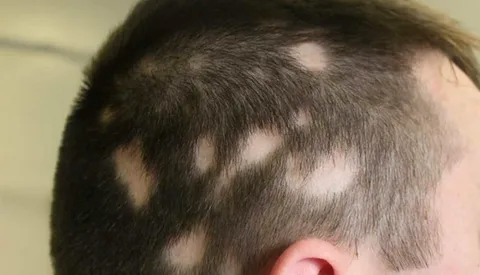Alopecia areata is an autoimmune condition characterized by sudden, patchy hair loss. It affects people of all ages and can cause emotional distress due to its impact on appearance. In Dubai, various advanced treatment options are available to manage and potentially reverse the effects of alopecia areata. This article explores the treatment approaches and innovations offered for Alopecia Areata Treatment in Dubai ( علاج الثعلبة البقعية في دبي ).
Understanding Alopecia Areata
Alopecia areata occurs when the immune system mistakenly attacks hair follicles, leading to hair loss. This condition can result in small, round patches of hair loss on the scalp or other areas of the body. The severity and progression of alopecia areata can vary, with some individuals experiencing complete regrowth of hair, while others may face recurrent episodes.
Diagnostic Process for Alopecia Areata
Consultation and Examination
The first step in treating alopecia areata is a thorough consultation with a dermatologist or trichologist. The specialist will perform a physical examination of the affected areas and review the patient's medical history. This helps to determine the extent of hair loss and the most appropriate treatment options.
Diagnostic Tests
In some cases, additional diagnostic tests may be necessary to confirm the diagnosis and rule out other potential causes of hair loss. These tests can include blood tests to check for underlying conditions or a scalp biopsy to examine hair follicles more closely.
Treatment Options for Alopecia Areata in Dubai
Dubai offers a range of advanced and effective treatments for alopecia areata. These treatments aim to stimulate hair regrowth, manage symptoms, and improve overall hair health.
Topical Treatments
- Minoxidil (Rogaine)
Minoxidil is a commonly used topical treatment for alopecia areata. It is applied directly to the scalp to stimulate hair follicles and promote hair regrowth. This treatment can be effective for some patients, especially when started early in the course of the condition.
- Steroid Creams
Topical steroids can help reduce inflammation and suppress the immune response that targets hair follicles. These creams are applied to the affected areas and can be effective in promoting hair regrowth in some patients.
Intralesional Steroid Injections
Intralesional steroid injections involve injecting corticosteroids directly into the bald patches. This method helps to reduce inflammation and suppress the immune system’s attack on hair follicles. It is often used for more localized or resistant cases of alopecia areata.
Oral Medications
- Corticosteroids
Oral corticosteroids are sometimes prescribed for more severe cases of alopecia areata. These medications work by reducing inflammation and suppressing the immune system. They are typically used for short-term treatment due to potential side effects.
- Immunotherapy
Oral immunotherapy agents, such as diphencyprone (DPCP), can be used to induce an allergic reaction on the scalp. This reaction can help stimulate the immune system to target the areas affected by alopecia areata, promoting hair regrowth.
Platelet-Rich Plasma (PRP) Therapy
PRP therapy involves drawing a small amount of the patient's blood, processing it to concentrate platelets, and injecting the PRP into the scalp. The growth factors in PRP can help stimulate hair follicles and promote hair regrowth. This treatment has shown promising results for some individuals with alopecia areata.
Hair Transplant Surgery
For patients with extensive or long-standing alopecia areata that does not respond to other treatments, hair transplant surgery may be considered. This procedure involves transplanting hair follicles from one area of the scalp to the bald patches. Hair transplant surgery is typically performed by skilled surgeons in Dubai's leading clinics.
Lifestyle and Supportive Measures
In addition to medical treatments, several lifestyle and supportive measures can help manage alopecia areata and improve overall well-being.
Nutritional Support
A balanced diet rich in vitamins and minerals can support overall hair health. Nutrients such as biotin, zinc, and iron play a crucial role in maintaining healthy hair growth. Consulting with a nutritionist can help ensure that your diet supports your treatment plan.
Stress Management
Stress can exacerbate alopecia areata and other health conditions. Practicing stress management techniques, such as meditation, yoga, or counseling, can help reduce the impact of stress on hair loss and overall health.
Support Groups and Counseling
Joining support groups or seeking counseling can provide emotional support and coping strategies for dealing with the psychological impact of hair loss. Support groups can also offer valuable information and connect individuals with others who have experienced similar challenges.
Choosing the Right Treatment in Dubai
Selecting the right treatment for alopecia areata involves considering various factors, including the severity of the condition, the patient’s overall health, and their personal preferences. Dubai offers a range of clinics and specialists with expertise in treating alopecia areata. It is essential to consult with a qualified professional to discuss the most suitable treatment options for your specific needs.
Conclusion
Alopecia areata can be a challenging condition, but Dubai provides a wealth of advanced treatments and supportive measures to address hair loss. From topical treatments and steroid injections to PRP therapy and hair transplant surgery, patients have access to a variety of effective options. Combining medical treatments with lifestyle changes and emotional support can help manage alopecia areata and improve overall hair health. If you are experiencing hair loss due to alopecia areata, consulting with a specialist in Dubai can provide the guidance and treatment necessary to achieve the best possible outcomes.





Comments